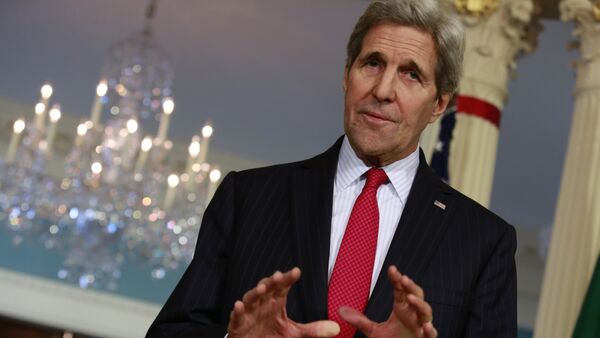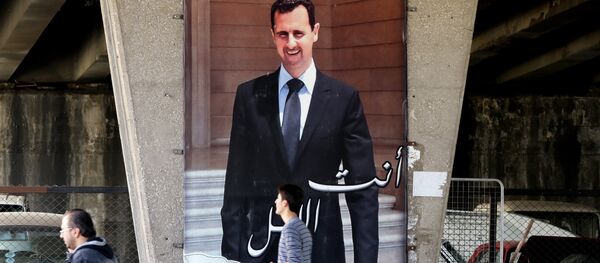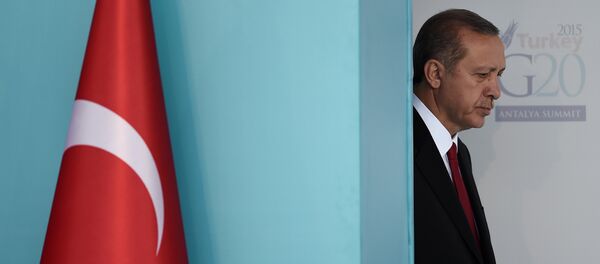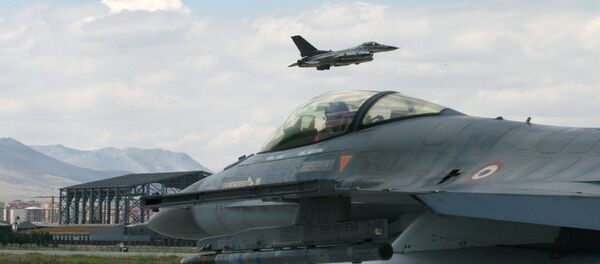Amid the newly settled truce in Syria, brokered by Russia and the US, top US and NATO military leaders have agreed that Russia poses an "existential threat" to the United States.
"Russia has chosen to be an adversary and poses a long-term existential threat to the US and to our European allies and partners. Russia sees the United States and NATO as threats to its goals and constraints to its aspirations," NATO Supreme Allied Commander General Philip Breedlove told journalists on Tuesday.
Previously, on February 25, General Breedlove went even so far as to claim that the US European Command (EUCOM) and NATO are ready, "if necessary," to fight against Russia and win.
It is goes without saying that such warmongering rhetoric may only aggravate further tensions between Moscow and Washington.
"We are living in an exceedingly difficult time. A time which is a new Cold War, but which is itself, as I often also tried to emphasize in the past, even more dangerous than the preceding forty-year Cold War at least the history after the Cuban crisis, because there are no rules in this new Cold War, no red lines, no agreed upon conducts by Washington and Moscow, the kind that kept us safe during these forty years," Stephen F. Cohen, professor emeritus of Russian studies at New York University and Princeton University underscored in an interview on The John Batchelor Show.
The American academic noted that thanks primarily to John Kerry and his backers in Washington "we [the US] now have an actual partnership" with Vladimir Putin and Moscow in the form of the Syrian ceasefire agreement.
"It's not a complete ceasefire, because both sides agree that fighting against terrorists there… will continue both by Moscow and Washington. So we have a partnership, we have a flicker of hope," Professor Cohen stressed.
However, at the same time we see the US war party has emerged, willing to throw a monkey wrench in the ongoing peace process. Those who are against ending the Cold War are now in the open, the professor remarked.
The situation is complicated by the fact that Washington has repeatedly betrayed Russia's trust, by unleashing wars in Yugoslavia, Iraq and Libya. The US military operations and Washington-backed regime change campaigns resulted in either dissolution of the states or longstanding ethnic and sectarian strife.
Furthermore, it is adding fuel to the fire of the ongoing refugee crisis and blackmailing Brussels into providing more financial aid to Ankara.
Turkey, a NATO member state, has become a trouble-maker in the eyes of the West.
According to Syrian Kurdish groups, Turkey has been violating the ceasefire by shelling Kurds in northern Syria. However, Ankara rejects the claim.
Moreover, it is no longer a secret that Ankara is assisting Daesh and other Islamists in Syria.
Professor Cohen pointed out that Moscow has asked Washington to "rein Turkey in" since the main goal the powers are pursuing in the Middle East is to defeat Daesh.
But there is the possibility that "some people in the [Obama] administration are perfectly pleased with what Turkey is doing," the professor noted, adding that "it is an exceedingly dangerous factor."
The US academic underscored, that while the Syrian ceasefire is being unfolding "okay," there are people in Brussels, Washington and NATO headquarters who are against it.
"The Syrian ceasefire… if successful — a successful act of cooperation between Moscow and Washington — could then be extended to Ukraine, because the good will, the trust, the cooperation, the precedent would be there," he emphasized.
However, the question remains open what faction in Washington will finally prevail.





